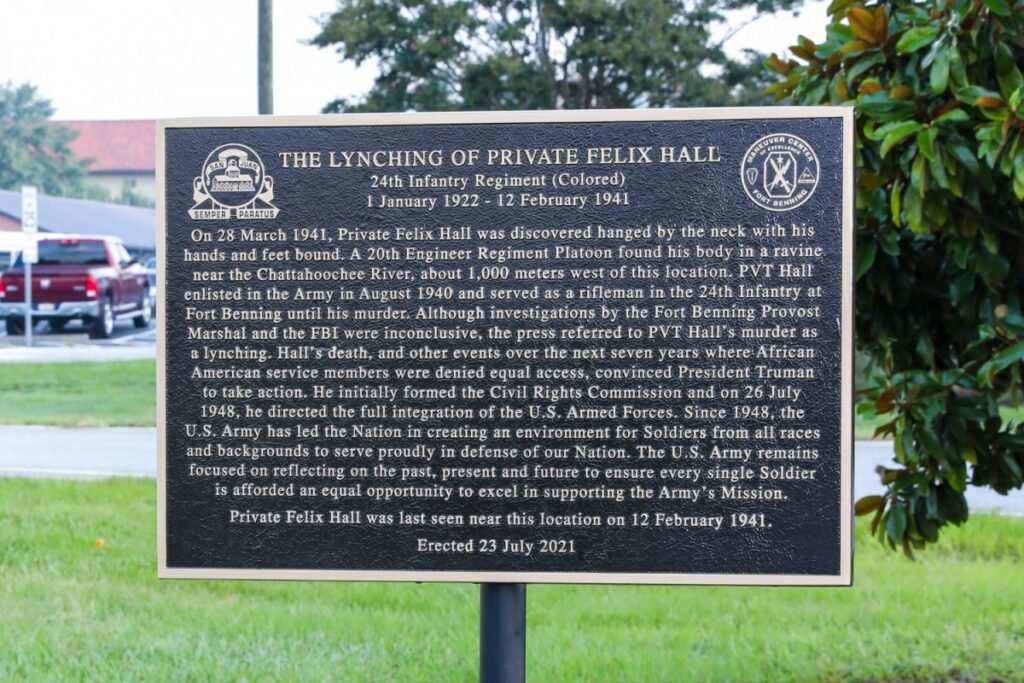The U.S. Army unveiled a memorial honoring a Black soldier who was found hanging from a tree on a Georgia military base 80 years ago, a lynching case that remains unsolved.
Pvt. Felix Hall was last seen alive in an all-white neighborhood in February 1941, according to Northeastern University’s Civil Rights and Restorative Justice Project. A month after his disappearance, he was declared a deserter.

Hall was found in a wooded area at Fort Benning by a group of soldiers training in the area. His hands and feet were bound. He had managed to free his feet and left hand but died with a noose around his neck. He was 19.
Hall enlisted in August 1940 as an infantryman with the 24th Infantry Regiment at Fort Benning, according to Northeastern.
The military initially dismissed the hanging as a suicide, according to the Northeastern University project. After a doctor ruled his death a homicide and the NAACP and other organizations demanded justice, the FBI launched a 17-month investigation.
Black soldiers told investigators Hall feared for his life after an argument with a white civilian foreman at a sawmill, who was angry Hall refused to address him as “sir.” The FBI identified two suspects, but no one was prosecuted, according to the project.
“Though Pvt. Hall was taken from us decades ago, this wound has been open for far too long,” Rep. Sanford Bishop, who represents Georgia’s 2nd Congressional District, said in a statement. “Thank God, today we are coming to heal.”
The marker is a reminder that racism is a “constant challenge,” Bishop said.
“We are training a new generation of Soldiers who will be stronger for knowing about Pvt. Hall,” he said. “They will be armed to confront our foes whether they seek to tear us apart with bullets or with bigotry.”
Hall’s death was among events that led President Harry Truman to desegregate the armed forces in 1948, the statement said.
“But we can’t be satisfied until we have a generation that fully represents all elements of our population, serving this country in uniform that can look at the marker we will unveil, and say to themselves, ‘Never again in my country, never again in my Army,'” Lt. Gen. Theodore Martin, commanding general of the U.S. Army Combined Arms Center, said in the statement.
At Tuesday’s unveiling of the marker, Martin told a crowd of onlookers, “I wish today felt like we were righting a wrong, but I know what we’re really doing is just acknowledging one.”
___
(c) 2021 USA Today
Distributed by Tribune Content Agency, LLC.



